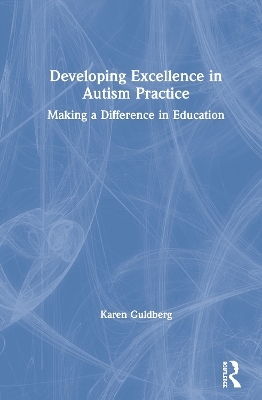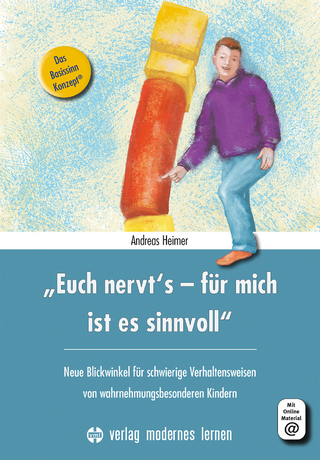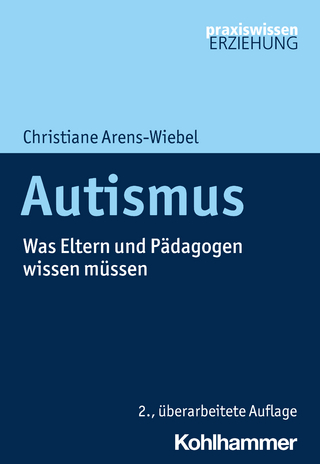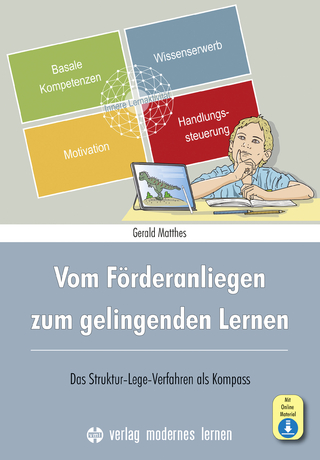
Developing Excellence in Autism Practice
Routledge (Verlag)
978-0-367-22671-8 (ISBN)
This ground-breaking book gives an accessible overview and synthesis of current knowledge of relevance to the development of excellence in autism education. By situating understandings of autism within a ‘bio-psycho-social-insider’ framework, the book offers fresh insights and new ways of thinking that bring together global pedagogic practice, research, policy, and the insider perspective.
Guldberg critiques current notions of Evidence-Based Practice and suggests ways of bridging the research-practice gap. She explores the interrelationship between inclusive principles, distinctive group learning needs and the individual needs of the child or young person. Eight principles of good autism practice provide a helpful framework for how education settings and practitioners can adapt classroom environments and teaching so that autistic children and young people can thrive.
Written for anyone who wants to make a difference to the lives of autistic pupils, Developing Excellence in Autism Practice provides practitioners and students on education courses with tools for best practices, and shows how to draw on these to implement true positive change in the classroom.
Karen Guldberg is Professor of Autism Studies and Director of the Autism Centre for Education and Research (ACER) at the School of Education, University of Birmingham, UK.
Acknowledgements
PART 1 Current evidence and knowledge from different domains in autism studies: implications for education
Preface
Chapter 1 Introduction
Overview
Key question
Introduction
The key questions this book addresses
Summary
Recommended reading
Chapter 2 The bio-psycho-social-insider model
Overview
Key questions
Introduction
Models of disability
The bio-psycho-social model
Summary
Recommended reading
Chapter 3: Contributions from biology and the medical domain
Overview
Key questions
Introduction
Diagnostic criteria
The diagnostic process
Broader health issues in autism
Inter-professionalism
The strengths and positive aspects of autism
Summary
Recommended reading
Chapter 4 Contributions from psychology
Overview
Key questions
Introduction
Developmental psychology and psychosocial interventions
Psychosocial interventions
Behavioural psychology
Psychosocial interventions and practical approaches
Core components of effective interventions
Summary
Recommended reading
Chapter 5 Learning from autistic perspectives
Overview
Key question
Introduction
The neurodiversity movement
Criticism of the neurodiversity movement
Implications for education
Summary
Recommended reading
Chapter 6 Contributions from the social sciences
Overview
Key question
Introduction
The macro system
The microsystem: the family, peers and school experiences
Summary
Recommended reading
Chapter 7 Evidence-Informed Practice
Overview
Key questions
Introduction
The evidence base from research studies
The research-practice gap
Bridging the gap
From evidence based to evidence informed practice
The need for new methodologies
Summary
Recommended reading
PART 2 Inclusive practice and distinctive pedagogies for autistic pupils
Chapter 8 Inclusion and inclusive pedagogy
Overview
Key questions
Inclusive education: more than a locational issue
What does inclusion mean in practice?
Pedagogy
Dimensions of pedagogy
Summary
Recommended reading
Chapter 9 Inclusive pedagogy for autistic children and young people
Overview
Key questions
Introduction
Teaching as interconnection between curriculum (what), pedagogy (how) and rationale (why
Current guidelines in autism education
The distinctive group differences of autistic children
Implications for the curriculum
Methods
Summary
Recommended reading
Chapter 10 Eight principles of good autism practice in education
Overview
Key questions
Introduction
Principle One: Understanding the strengths, interests and challenges of the autistic child and young person
Principle Two: Enabling the voice of the autistic child and young person to contribute to and influence decisions
Principle Three: Collaboration with parents and caregivers of autistic children and young people
Principle Four: Workforce development to support children and young people on the autism spectrum
Principle Five: Leadership and Management that promotes and embeds good autism practice
Principle Six: An ethos and environment that fosters social inclusion for children and young people on the autism spectrum
Principle Seven: Targeted support and measuring progress of children and young people on the autism spectrum
Principle Eight: Adapting the curriculum, teaching and learning to promote wellbeing and success for children and young people on the autism spectrum
Summary
Recommended reading
Chapter 11 Professional development
Overview
Key question
Introduction
The Autism Education Trust programme
Pedagogy
Bringing different elements of the community together
Outcomes
International implications: case studies from Greece and Italy
Summary
Recommended reading
Chapter 12 The scholarly practitioner
Overview
Key question
Introduction
Community engaged scholarship and research
The scholar practitioner
What skills do scholar practitioner need?
Towards communities of practice
How can we move forward?
References
| Erscheinungsdatum | 04.06.2020 |
|---|---|
| Zusatzinfo | 5 Line drawings, black and white; 5 Illustrations, black and white |
| Verlagsort | London |
| Sprache | englisch |
| Maße | 156 x 234 mm |
| Gewicht | 498 g |
| Themenwelt | Sozialwissenschaften ► Pädagogik ► Sonder-, Heil- und Förderpädagogik |
| ISBN-10 | 0-367-22671-5 / 0367226715 |
| ISBN-13 | 978-0-367-22671-8 / 9780367226718 |
| Zustand | Neuware |
| Informationen gemäß Produktsicherheitsverordnung (GPSR) | |
| Haben Sie eine Frage zum Produkt? |
aus dem Bereich


